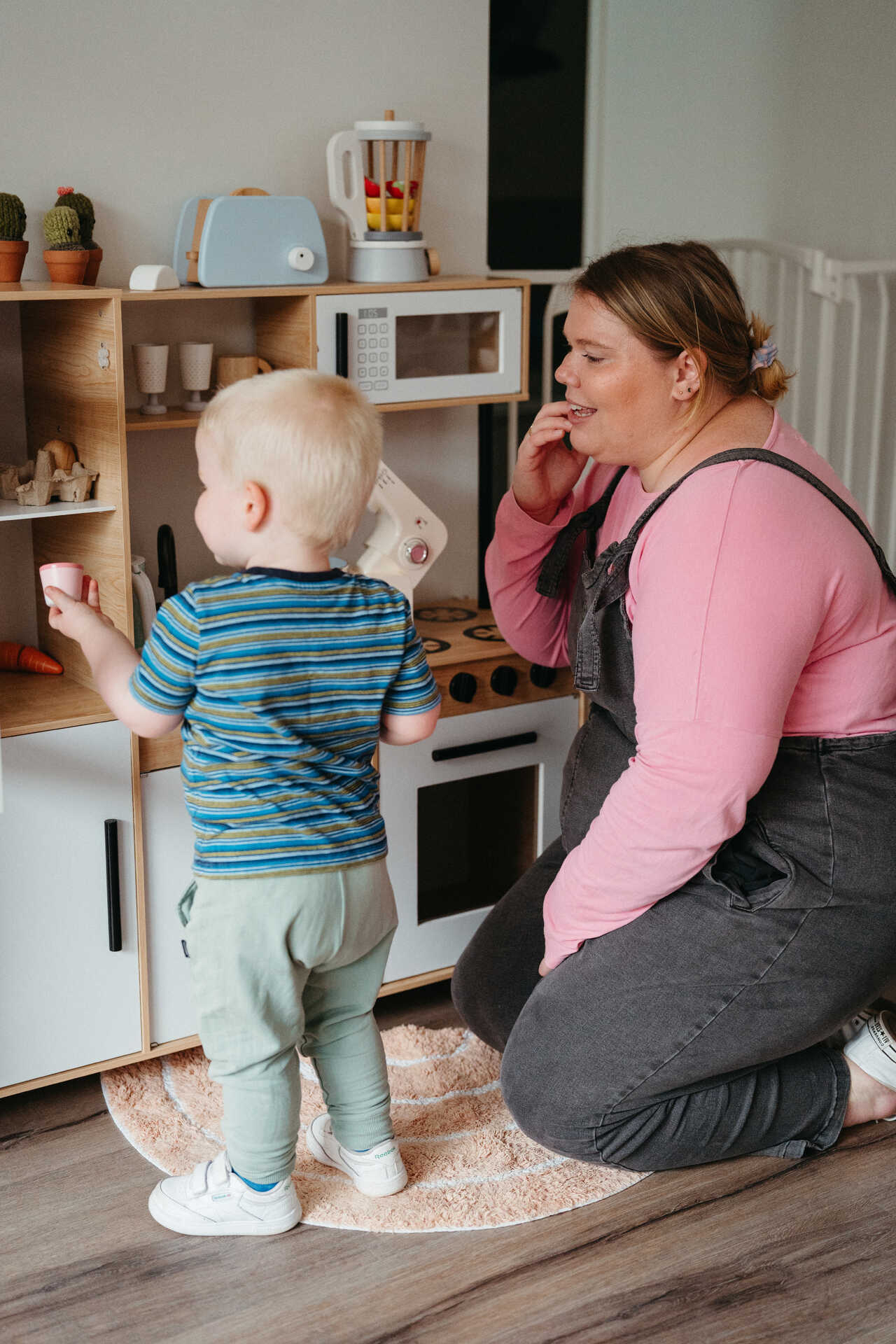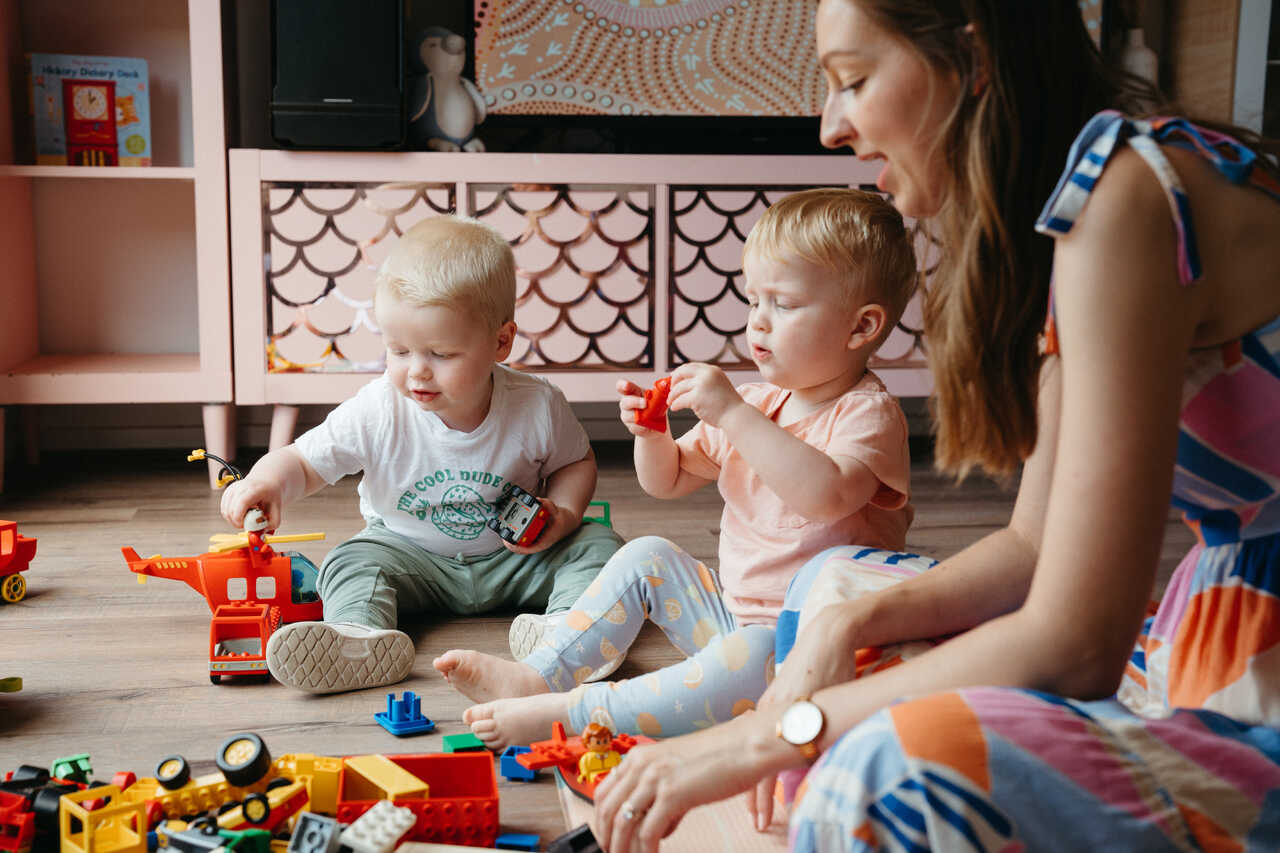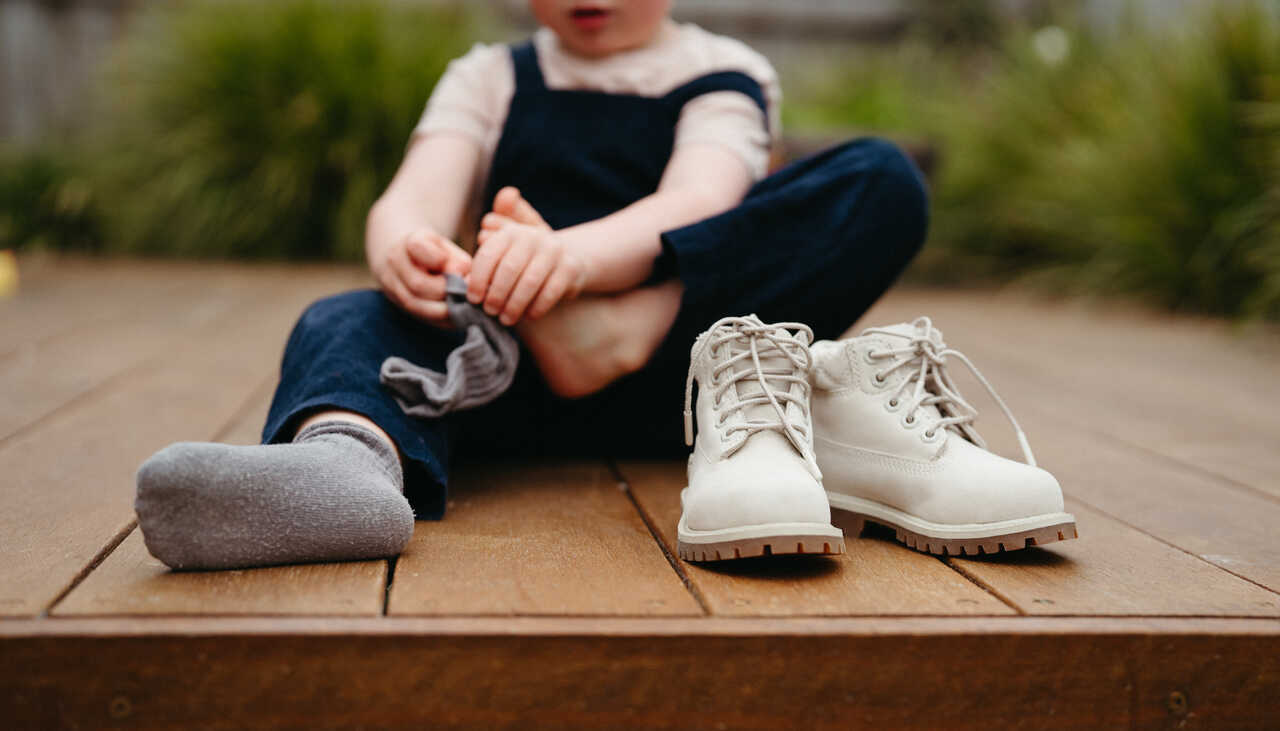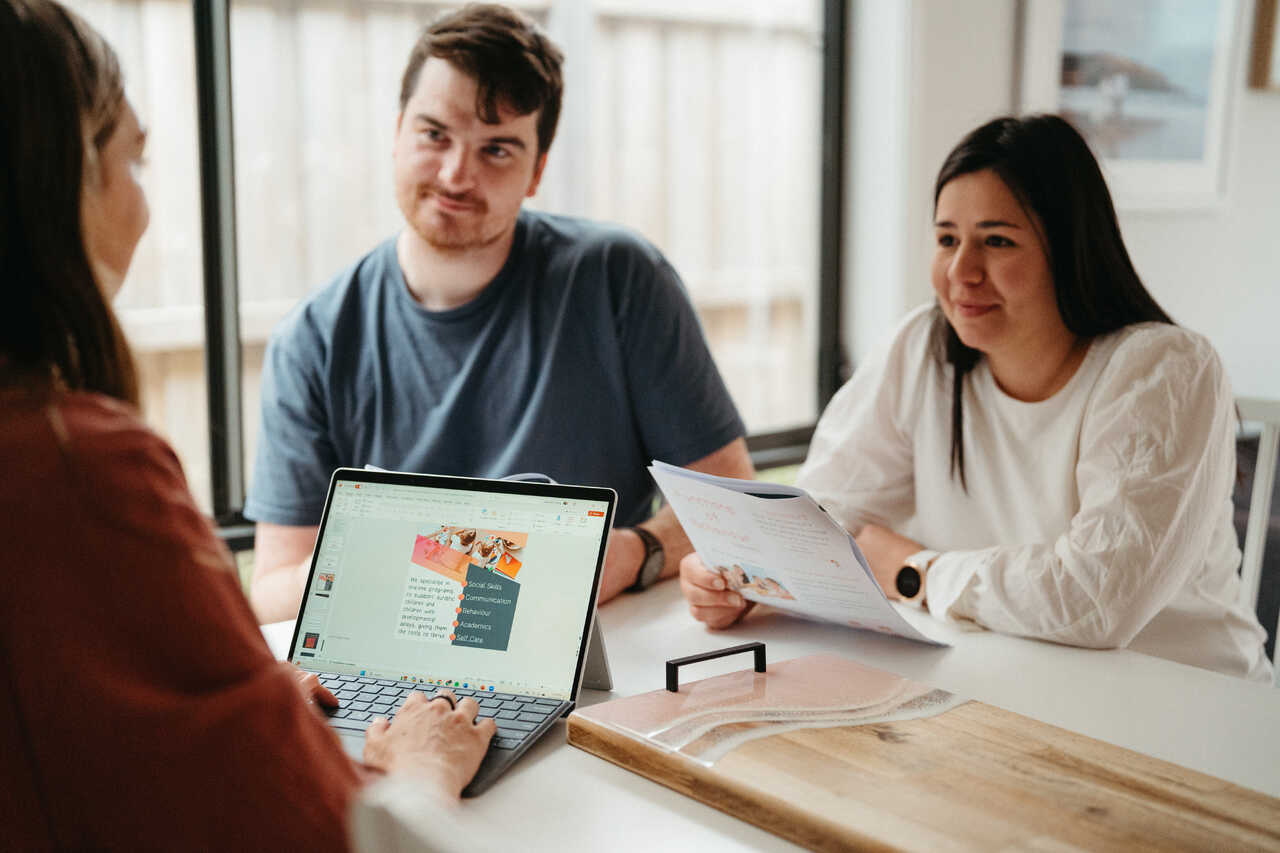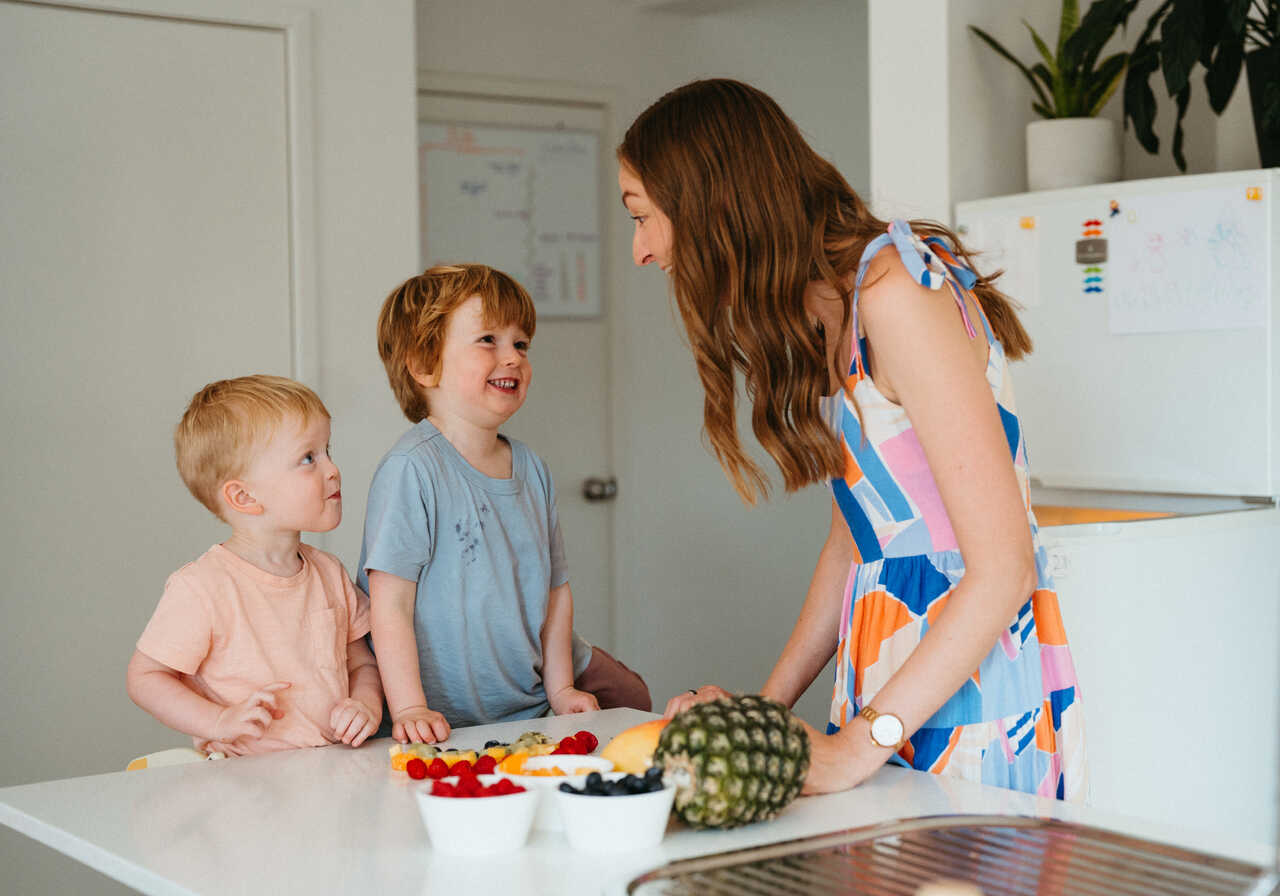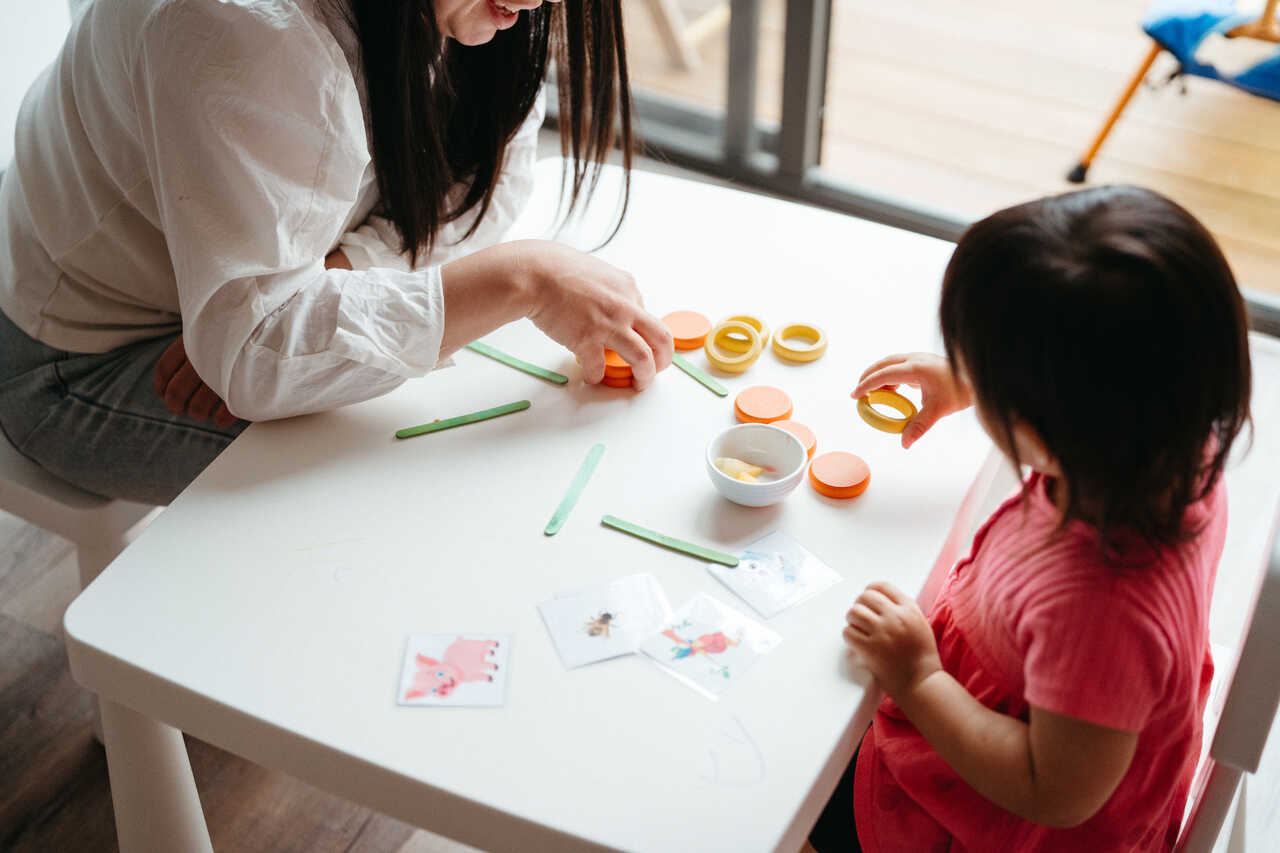Frequently Asked Questions for Families
What does a typical therapy session look like?
Home sessions
Your child’s therapist comes to you! They’ll arrive with a positive outlook, ready to have lots of fun. Therapists spend 5-10 minutes preparing your child’s materials so they’re ready for the session, and then get straight into teaching!
One-to-one time is spent in natural environment teaching, where the therapist follows your child’s lead and uses natural opportunities to teach through play. When it is age and learner appropriate, this is alternated with more structured intensive teaching, usually at a table or on a play mat. Your child’s therapist will provide lots of positive reinforcement throughout the session, keeping learning fun and engaging for your child. Your child will have a lot of learning opportunities to build on and develop their skills in this fun environment.
The last 15 minutes are saved for data collection. The bulk of the session’s data collection is completed at the end, to ensure time spent with your child is high quality engagement – because it would be really annoying and distracting if someone kept stopping every minute or so to write something down!
School sessions
Daycare, kinder, and primary school are all great environments for your child’s therapy sessions. The targets we work on in education settings are a little different, so we usually recommend both home and school sessions.
Your child’s therapist will arrive, gather any program materials, and get straight into the session. Depending on the time and day, and the group/class your child is in, will depend on the targets that are worked on. In school sessions, we encourage your child to be included in the activities their peers are engaged in. For example, if the children are outside playing, your therapist will help your child to play outside too. Depending on their skill set and age, this may involve prompting your child to join games with their friends, or teaching them how to play with various toys. Prompting involves helping your child complete a task, at a level they are comfortable with – therapists are trained on gaining appropriate consent from children with various levels of communication skills. For example, if your child is playing Simon Says with friends, your therapist may exaggerate the motion to prompt your child to copy or help move their body into the right position if your child is happy for this prompt to be given in the moment.
Prompts are kept to the level required by your child, encouraging them to be independent with their skillset. More difficult skills are broken down where required. Therapists provide positive reinforcement to encourage your child.
Our overall goal is to teach your child to learn and engage with their peers and educators without us, essentially making our roles redundant, but be there when they need and will benefit from us.
What prerequisite skills does my child need to get started at Cheeky Raspberries?
No prerequisite skills are required. Your child’s program supervisor will begin with an assessment, and then develop individual programs for your child to build on their current skillset. All children are unique, and constantly developing and changing too, so it’s important that we are flexible in our programs and teaching to suit each child, updating targets as they learn.
What if my child does not have an ASD diagnosis?
A diagnosis is not a requirement for our kids at Cheeky Raspberries. Learner programs are highly individualised to your child, not to their diagnosis. People often think of autism and ABA because that is where the most research and largest evidence base exists, however, an evidence base also exists for those pre-diagnosis and those not on the spectrum. The NDIS provides funding for children with and without a diagnosis. More on the NDIS from the Raising Children Network.
What if my child has a diagnosis that isn’t ASD, or they have a dual/multiple diagnosis?
We work with children with a large variety of neurodevelopmental needs, inclusive of autism spectrum disorder (ASD), intellectual disability (ID), attention-deficit/hyperactivity disorder (ADHD), as well as children without a diagnosis. If you’re not sure if we’re the right fit, please contact us to enquire if we can provide the appropriate therapy and support for your child. If we are not the right fit, we are often able to make a referral or recommendation.
What will my role as a parent be in my child’s ABA program?
Parents play an active role in their child’s therapy program. Parents are:
- Encouraged to attend monthly meetings, where progress, goals, and programs are reviewed and updated.
- Provided with theory training from the commencement of services.
- Provided with in-person training as required.
- Welcome to observe their child’s sessions when they wish.
- Able to contact their program supervisor directly via phone or email.
Parental input is essential for the most effective ABA programs to be developed and implemented. Information such as successes and areas for growth your child has outside of the therapy sessions, and any life changes and events that are occurring will all inform our practice.
Why do you provide so many hours per week and how do we fit it all in?
For most of our learners, the intensity of hours is one of the essential components of their ABA therapy. We encourage families to complete therapy hours in home and school sessions. This ensures we can teach essential skills in your child’s usual environments. Therapy time may also include developing relationships with siblings and peers (including playdates outside of school), feeding programs, and sleep programs. If you would like your child to be supported in other extracurricular activities, such as swimming, this can also be accommodated. We understand that family time and time to unwind and relax is important, and work with your child to ensure they are not overwhelmed, but instead supported, during therapy.
It is important to remember that therapy time is not about separating your child and pulling them out of tasks. In fact, it’s quite the opposite. We teach our learners the skills to learn and thrive with their peers, empowering them by giving them the skills so they can choose to engage in their community.
Do you incorporate siblings into therapy?
We are happy to include siblings in your child’s therapy program. Because therapists provide frequent reinforcement and teach through lots of fun learning opportunities, it is not uncommon for siblings to request sessions with “home teachers” as they usually call us. Incorporating siblings into therapy:
- Builds the sibling relationship.
- Develops social skills for all children involved.
- Is more inclusive for the siblings.
Can we include cousins or friends for playdates to work on social skills?
Yes. Including peers in therapy can help your child build their social skills outside of their education setting (childcare, kinder, or school). It can allow your child to build a relationship beyond the schoolyard and allow your child to develop relationships with peers they don’t attend school with (such as cousins or family friends).
What materials and space do we need to provide at home?
Whilst we move around a lot, we require a main space for your child’s therapy sessions in the home. If you have a front room or a playroom, this is ideal as it will minimise distractions from others in the home. A child’s bedroom may also have enough space. If these are not suitable, we often set up in the lounge room and/or dining room. Usually, a small table and chair are required, table skills are particularly important for children who are in or about to start school. During the initial intake, our director will advise on what is required for your child, being flexible based on your situation and working within your available space.
Your child will have their own program materials. Some of these will be provided by parents, often what you already own such as books, puzzles, and other toys. We make recommendations for additional toys and materials that are beneficial for your child’s learning (for instance type of puzzles that are most beneficial for your child’s development, which fine motor games would they benefit from, etc), but most of the materials will be specifically made by us for your child.

